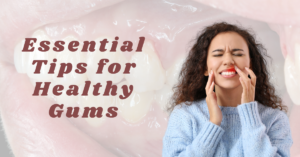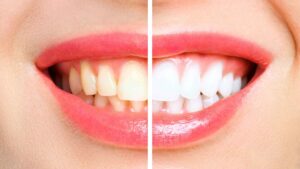Have you ever wondered if you’re truly getting the most out of your dental insurance? Many families in Charlotte pay for insurance but don’t fully understand how it works or worse, they lose hundreds of dollars each year in unused benefits.
At Steele Creek Smiles, we believe your dental insurance should work for you. Whether it’s preventive care for your kids, restorative treatments for adults, or family checkups, understanding how your plan works can help you save money, protect your health, and keep your smile shining.
If you’re looking for guidance on dental insurance in Charlotte, this blog breaks it down in simple terms so Steele Creek families can make the best decisions for their oral health.
How Dental Insurance Works
Dental insurance can feel complicated, but once you understand the basics, it becomes much easier to maximize your benefits. Most plans follow a 100-80-50 coverage model:
- Preventive Care (100%) – Cleanings, exams, and X-rays are usually covered in full.
- Basic Treatments (70–80%) – Fillings, extractions, and periodontal therapy are partially covered.
- Major Treatments (50%) – Crowns, dentures, implants, and bridges often require more out-of-pocket costs.
Unlike medical insurance, dental insurance focuses on prevention. This means your plan is designed to keep your teeth and gums healthy so you can avoid expensive treatments later.
👉 Tip: Always schedule your two preventive cleanings each year most plans cover these at no additional cost to you.
Why Using Your Dental Benefits Matters
Each year, dental insurance plans come with an annual maximum (the total your insurance will pay within a year). Once January 1st arrives, unused benefits typically reset.
That means:
- If you don’t use it, you lose it.
- Families in Charlotte often miss out on hundreds of dollars in unused benefits.
- Small issues left untreated can turn into costly dental problems later.
By using your benefits before they expire, you’re not only saving money you’re also protecting your family’s oral health.
Dental Coverage Explained: Common Terms to Know
Insurance paperwork often feels like a foreign language. Here’s a quick breakdown:
- Annual Maximum: The limit your insurance will pay for treatments in a given year.
- Deductible: The amount you pay before your insurance begins coverage.
- Copay/Coinsurance: Your portion of the bill after insurance pays its share.
- Waiting Period: Certain treatments may require a waiting time before coverage applies.
At Steele Creek Smiles, our front desk team will happily explain your plan, submit claims for you, and provide estimates before treatment so you’re never caught off guard.
Tips to Maximize Your Dental Insurance Benefits
Here are some practical ways to get the most from your coverage:
- Don’t skip preventive checkups. They’re usually free with your plan.
- Use both calendar years for major treatments. If your procedure exceeds your annual maximum, we can help split it between December and January.
- Ask about pre-treatment estimates. We’ll check with your insurance provider before starting major work.
- Coordinate benefits if you have dual coverage. Couples and children often benefit from multiple policies.
- Choose a family dentist in Charlotte who accepts your insurance. Steele Creek Smiles works with many major providers to make dental care affordable.
Why Steele Creek Smiles Is the Trusted Family Dentist in Charlotte
At Steele Creek Smiles, we’re more than just a dental office we’re a family-focused practice dedicated to making your care affordable and stress-free.
We proudly serve patients in Charlotte, NC 28273, and nearby areas including Lake Wylie, Fort Mill, Berewick, and Rivergate. Our friendly team will:
- Review your dental plan with you.
- Explain your coverage in plain language.
- Help you maximize your dental insurance benefits.
- Provide flexible treatment plans tailored to your needs.
Whether it’s routine cleanings for your kids, cosmetic dentistry, or restorative treatments, Steele Creek Smiles is your trusted partner in dental health.
FAQs About Dental Insurance in Charlotte
Q: What is dental insurance in Charlotte, NC?
A: Dental insurance helps cover preventive and restorative care costs. Most plans fully cover cleanings and exams twice a year.
Q: How do I maximize my dental insurance benefits?
A: Schedule your preventive visits, understand your annual maximum, and plan major treatments strategically.
Q: Does Steele Creek Smiles accept my insurance?
A: Our office works with many major insurance providers. Call us, and we’ll gladly check your coverage.
Q: What happens if I don’t use my benefits?
A: Most benefits expire at the end of the calendar year, meaning unused dollars are lost.
Don’t Let Your Benefits Go to Waste!
Your dental insurance is a valuable tool to keep your family’s smiles healthy and strong. At Steele Creek Smiles, we make it simple to understand and use your plan effectively.
📞 Call Steele Creek Smiles today at (704) 587-6000
💻 Schedule your appointment online
Take advantage of your benefits before they expire your smile (and your wallet) will thank you!








